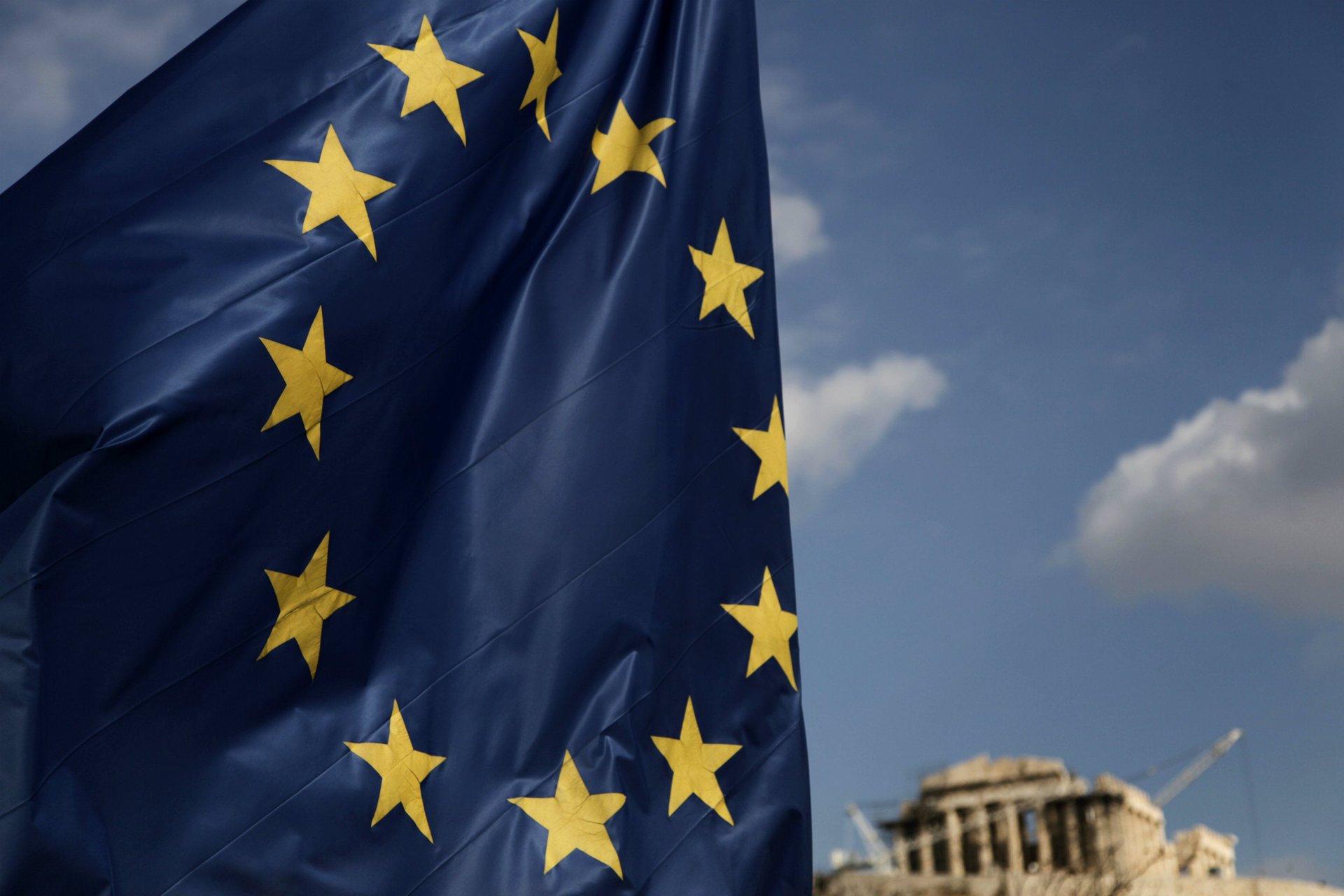Europe makes further charitable contribution with new Greek aid deal
European officials have finally reached agreement on a gentler debt-reduction plan for Greece. The marathon meeting into this morning between the euro zone’s 17 finance ministers, leaders of the International Monetary Fund (IMF), and the European Central Bank (ECB), resulted in a deal to reduce Greek debt by €40 billion ($51.9 billion). It also unlocked up to €44 billion in bailout aid that’s been on hold since June.


European officials have finally reached agreement on a gentler debt-reduction plan for Greece. The marathon meeting into this morning between the euro zone’s 17 finance ministers, leaders of the International Monetary Fund (IMF), and the European Central Bank (ECB), resulted in a deal to reduce Greek debt by €40 billion ($51.9 billion). It also unlocked up to €44 billion in bailout aid that’s been on hold since June.
The bailout overhaul involves cutting interest rates on loans, suspending interest payments for ten years and delaying maturities by 15 years, and agreeing to buy back Greek debt at steeply discounted prices. The ECB agreed to give profits linked to Greek bond holdings back to Greece.
The deal will help Greece reduce its debt as a percentage of GDP from 190% in 2014 to 124% GDP in 2020, above the 120% target previously set by the IMF. A further reduction to 110% of GDP by 2022 is also possible, according to IMF leader, Christine Lagarde, who said:
These are solid commitments that should help Greece to recover enough and regain access to markets as planned if it takes reform measures to improve its competitiveness.
“This is not about money,” said Jean-Claude Juncker, Luxembourg’s prime minister and president of the Euro Group.
This is the promise of a better future for the Greek people and for the euro area as a whole, a break from the era of missed targets and loose implementation towards a new paradigm of steadfast reform momentum, declining debt ratios and a return to growth.
For creditors, the bailout overhaul is a charitable deal in which some of them will be funding Greece at a loss, according to Deutsche Bank. A write-off of loans is not out of the question in future either, if Greek debt ultimately proves unsustainable. The deal, however, is a lifeline for the nearly-bust country and means investors, preoccupied for months over whether Greece would remain in the euro zone, can finally move on.
The deal comes as a huge relief in Athens where tensions were high over repeated funding delays. The Greek Parliament passed a contentious €13.5 austerity budget three weeks ago, required by international lenders, and have been waiting for payback ever since.
After the news, Prime Minister Antonis Samaras said:
Everything went well. All Greeks fought together. A new day begins tomorrow for all Greeks.